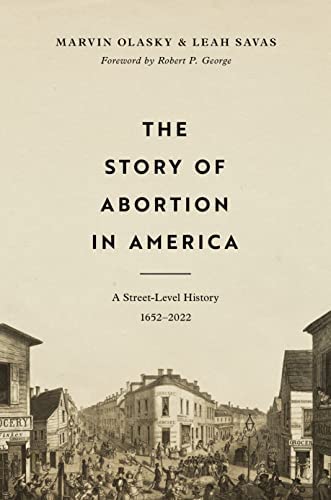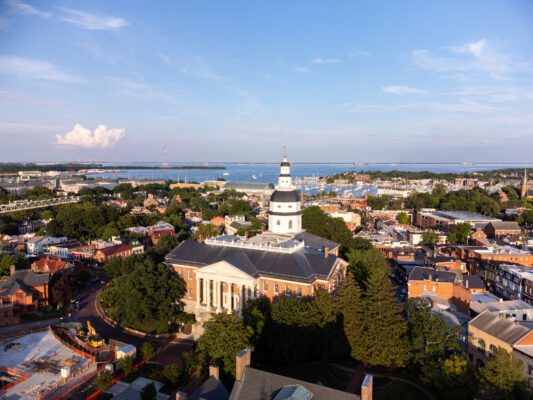In recent years, no other issue has been more heavily scrutinized, more thoroughly debated, or more embroiled in controversy than abortion and its legality. The abortion discussion in the United States reached a fever pitch this summer when, nearly 50 years after its passage, Roe v. Wade (along with Planned Parenthood v. Casey) was overturned by our nation’s highest court. With the metaphorical bang of a gavel, what had been settled law for a half-century was undone in a 5-4 decision.
But the history of abortion in America spans much longer than a mere 50 years, and it runs much deeper than what we can learn from the annals of U.S. legal history. To understand the foothold that abortion seems to have on the American psyche, we need a “street-level history,” which is what Marvin Olasky and Leah Savas provide in their book, The Story of Abortion in America: A Street-Level History 1652-2022.
Ten Percent of the Iceberg
“Law is the 10 percent of an iceberg visible from a fishing boat,” Olasky says. “This book reveals the 90 percent below the ocean’s surface.” What we find below the surface is unsettling. Throughout the book, as Robert P. George writes in the foreword, “Marvin Olasky and Leah Savas tell the story of abortion in America by telling the stories of abortion in America.” Tracing the narrative of the issue as far back as the mid-17th century, the authors recount our societal evolution, from being conscience-bound by “common sense” to being steadily more open to the idea that abortion is a woman’s right to eventually, as things seem now, being so hardened as to believe that abortion is a public good and a praiseworthy event in the lives of women.
What we find in our nation’s “on the ground” history are tales of utter heartbreak—like the story of Catherine Louisa Adams who, at the hands of a maleficent doctor, died in 1849 during a surgical abortion—and tales of injustice, infuriating corruption, and political expediency. But what we also find along the way are scores of pro-life Christians, sometimes getting it wrong, but most often doing what we’ve done for centuries: serving pregnant women who need help, pleading for the lives of preborn children, building pro-life institutions, and making our voices heard in the halls of power all across this land.
The story of abortion in America is a dark and sordid story, and you should be prepared for that before you open this book. But it’s a story from which the Church must not shy away.
The Importance of Public Sentiment
We find ourselves living at a time when, despite Roe’s overturning, America is “still unsettled” on the issue of abortion. Public opinion is split, and for advocates of abortion rights, their opinions are particularly strong and their tactics can be unnerving. How can the church continue its legacy of service and build on the triumph we witnessed this summer at the U.S. Supreme Court? As Olasky notes in the book, Abraham Lincoln would instruct us to focus not primarily on laws, that stingy tip of the iceberg, but “public sentiment.” Commenting on public sentiment, Lincoln said, “Without it nothing can succeed. Consequently, he who molds public sentiment, goes deeper than he who enacts statutes or pronounces decisions.”
So, as we consider our country’s long and unfolding relationship with abortion, Christians should know that the “enactment of statutes” or the “pronouncement of decisions,” while important, makes up only about 10% of the iceberg that is this issue. The 90% hovering hidden beneath the surface are the “street-level” stories of abortion, the “public sentiment” lying deep within the psyche of each of our neighbors. The story of abortion may be dark, but we are the light of the world.










